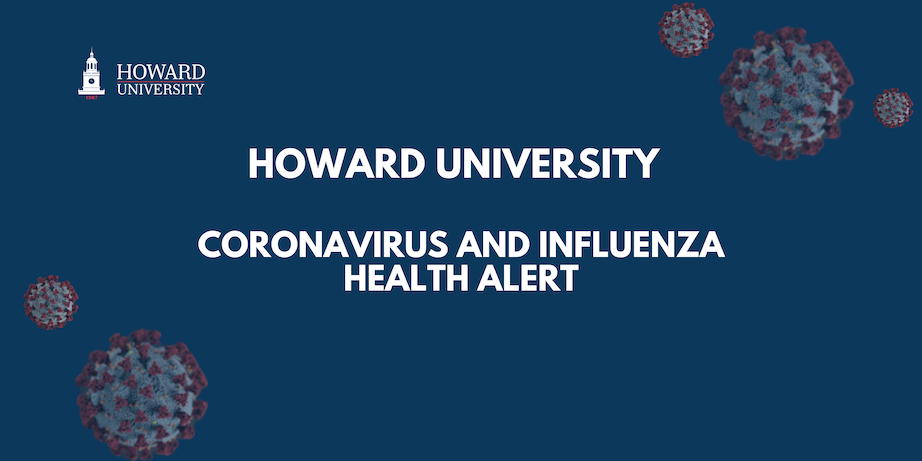
Dear Howard University Community,
The Centers for Disease Control and Prevention is closely monitoring an outbreak caused by a novel (new) coronavirus (2019-nCoV), first identified in Wuhan City, Hubei Province, China. The coronavirus is a family of viruses that includes the common cold. At this time, there are no confirmed cases of the 2019-nCoV in Washington, D.C. The D.C. Department of Health has met with and is working closely with all area hospitals, health care facilities, colleges and universities. They will provide updates should there be any changes to the local status.
The Student Health Center will continue health and travel screenings of all students presenting with cold and flu-like symptoms, but will not test for 2019-nCoV. All efforts will be coordinated with the DC DOH and the CDC should the need arise. For now, we are reminding all students to continue focusing on hand-washing, covering your cough and staying home if you are sick.
Please remember, flu activity is high in the U.S. and expected to continue for weeks. We do provide confirmatory testing for influenza. Any students who have not received the flu vaccine should strongly consider receiving it at no cost in the Student Health Center.
We encourage the University community to take the following steps to protect themselves and others:
- Stay home while sick and limit contact with others, until you are at least 24 hours fever free.
- Cover your cough or sneeze with a tissue or your sleeve.
- Wash your hands thoroughly and often with soap and water, or use an alcohol-based hand sanitizer.
- Avoid touching your eyes, mouth and nose.
- Avoid contact with others who are ill.
- Contact the telemedicine service, HealthiestYou, to speak to a physician for medical advice www.telehelp4students.com.
Advice when you are ill:
- Use acetaminophen (Tylenol) or ibuprofen (Advil, Motrin) as directed on the package to reduce fever and to ease aches and pains.
- Increase liquid intake and get plenty of rest.
- Try over-the-counter cough syrup (Dextromethorphan/Robitussin).
- Use a humidifier or vaporizer in your room for congestion or saline nasal spray.
Seek medical care (Student Health Center or Urgent Care) if you experience:
- Recurring flu-like symptoms with high fever and severe cough
- Decreased urination
- Persistent vomiting
- High fevers (above 102° F)
Seek emergency care (ER) if you experience:
- Shortness of breath
- Chest pain
- Confusion
- Severe vomiting
For more information:
DC Department of Health Influenza Fact Sheet
CDC Novel Coronavirus fact sheet: https://www.cdc.gov/coronavirus/2019-ncov/downloads/2019-ncov-factsheet.pdf
Excellence in Truth and Service,
Student Health Center




